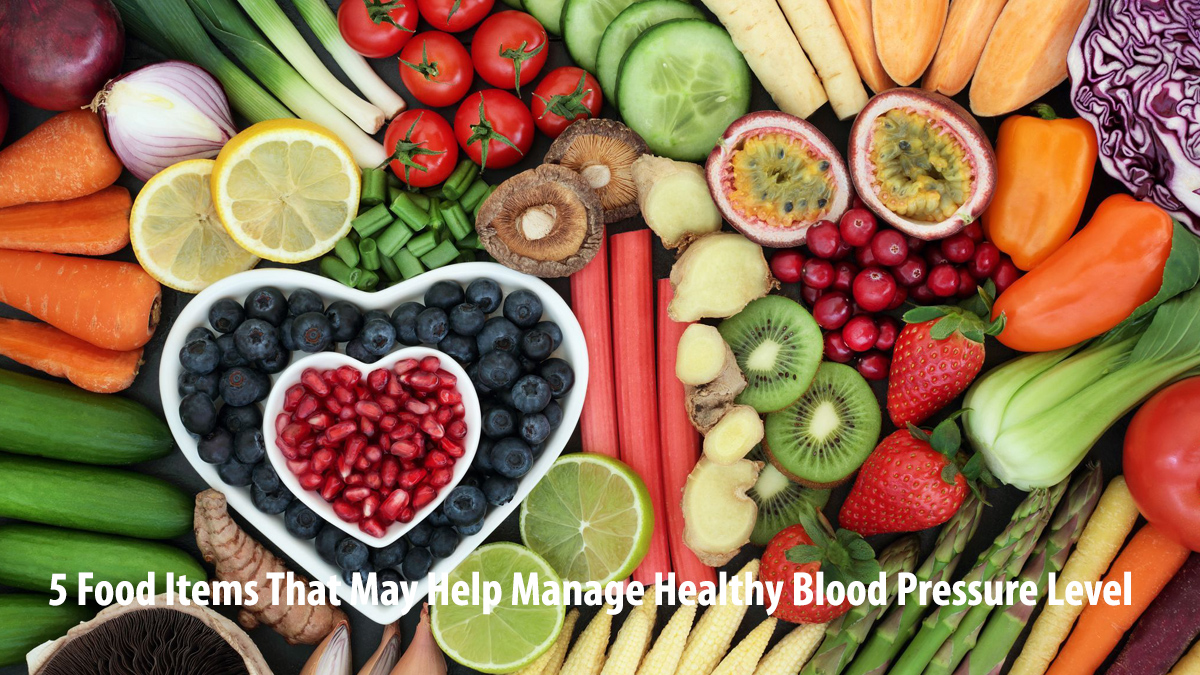If you’re looking for food items to help you control your blood pressure, you’ve come to the right place. Lemon water, Bananas, and Beetroot are all excellent choices for those who need to keep their pressure under control. Each one has different benefits for your body, but they all have one thing in common – they all have a low calorie count. So, which ones can you incorporate into your daily diet to keep your blood pressure at a healthy level?
Beetroot help manage healthy blood pressure levels
If you’re concerned about high blood pressure, eating beetroot may help. Research suggests that the juice of beets can lower systolic pressure and improve the functioning of the heart. One glass of beet juice can reduce your pressure by as much as 14 mm/Hg in a week, and it can increase your energy levels too. While the effects aren’t conclusive, eating a beetroot daily may help lower your pressure.
A small study published in the Journal of Hypertension suggests that beetroot may help manage healthy blood pressure levels. The researchers found that the dietary nitrite in beetroot juice helped lower blood pressure in a group of people. They also found that beetroot juice reduced blood pressure in rats with high blood pressure. It’s not clear whether the same effect occurs with beetroot juice, so it’s important to seek medical advice before consuming beetroot juice.
The juice of beetroots contains vitamins A and B that can improve nerve function. It also helps improve blood circulation to vital organs like the heart, and it also contains phytochemicals that boost circulation. Beetroot is a nutritious food that can be added to your daily diet. You may also want to consider adding a beetroot salad to your meals to boost your heart’s health naturally.
Lemon water help manage healthy blood pressure
Garlic and lemon juice are both known to lower blood pressure, but they also have immune-boosting properties. They also help the blood vessels remain soft and flexible. This ensures that blood flow is properly maintained. However, consuming lemons and lemon juice on a daily basis has not been proven to have a direct effect on blood pressure. Long-term clinical studies are needed to determine the role of garlic and lemon juice in cardiovascular mortality.
In a study conducted on 101 women in Japan, daily consumption of lemon juice and physical activity were associated with reduced blood pressure. The researchers attribute the positive results to the citric acid and flavonoid content of lemons. The researchers believe that lemons improve endothelial function and blood vessel elasticity. They have also found similar results with orange juice intake. Although the results are preliminary, this may be beneficial for the management of blood pressure and hypertension.
Drinking lemon water has many health benefits. Studies have shown that it can help regulate blood pressure. It also contains phenolic compounds that suppress blood pressure. Lemon is also rich in vitamins, minerals, dietary fibers, and essential oils. It is also an excellent remedy for low blood pressure and dehydration. Additionally, it can energize the liver and improve digestion. It can also reduce your risk of developing cardiovascular diseases.
Tomato help manage healthy blood pressure levels
Tomatoes contain lycopene, which has many benefits. This nutrient is a carotenoid, which means that it has strong antioxidant properties. It also helps prevent cancer. Tomatoes are great for so many reasons. For example, they have been linked to lower risk of colon cancer. Tomatoes are also high in lycopene, which protects the eyes from cataracts and age-related macular degeneration. The high potassium in tomatoes makes them an excellent heart-healthy addition.
Tomato juice is a great way to get these benefits. It is rich in antioxidants, potassium, and vitamins, which are great for your overall health. There are several ways to make your own tomato juice, but the easiest is to drink it every day. One study in Japan examined the effects of unsalted tomato juice on participants with high blood pressure. In this study, 94 of 481 participants experienced significantly lower blood pressure after drinking tomato juice regularly. However, the benefits were similar between men and women and among different age groups.
Interestingly, the research on tomato extracts shows that it significantly reduces systolic blood pressure. It also includes other tomato nutrients. A recent study by Lycored used pure lycopene in conjunction with its proprietary tomato nutrient complex. Tomato extracts were more effective than lycopene alone, as a combination of tomato phytonutrients can have a more favorable effect on blood pressure.
Bananas help manage healthy blood pressure levels
Bananas help control high blood pressure levels because of their rich content of potassium. A single medium banana contains about 420 milligrams of potassium, or nine percent of the recommended daily allowance. This natural substance can lower blood pressure and reduce blood pressure medication use. Bananas are also great for lowering blood pressure because they add a natural sweetness to foods. However, you should avoid eating bananas that are bruised, have brown spots, or dull undertones.
Another food that can lower blood pressure is pistachios. These crunchy nuts are a good source of magnesium, fiber, and protein. They can be consumed as a snack or added to salads or pestos to add protein and nutrition. In addition to lowering blood pressure, flaxseeds contain a-linolenic acid, an essential omega-3 fatty acid that reduces blood pressure, improves cardiovascular health, and reduces the risk of stroke. Flaxseeds are an excellent source of omega-3 fatty acids and can be added to salads and baked goods.
Bananas help manage high blood pressure levels by helping the body remove excess sodium. Sodium is a common contributor to high blood pressure and increases the workload of the kidneys. Potassium in bananas helps to counteract the effect of sodium by increasing the body’s ability to eliminate excess sodium. As a result, bananas can lower blood pressure by up to 10 percent. Bananas are especially important for people with high blood pressure, as they are an excellent source of potassium.
Watermelon help manage healthy blood pressure
Watermelon is a popular fruit for many reasons. Its high levels of citrulline, which is converted to arginine, help create nitric oxide, which relaxes blood vessels and arteries to reduce pressure. This substance can be found in watermelons year-round, making them an excellent choice for people with high blood pressure. This fruit also contains L-citrulline, an amino acid that may help lower your blood pressure.
Watermelon contains a lot of water and also provides a variety of nutrients including vitamin C, citrulline, lycopene, and a plethora of other nutrients. The fruit is an excellent choice for a snack or evening snack. You can add watermelon to smoothies, and can also enjoy a popsicle. However, a single watermelon may not be enough for optimal health.
Some studies have also shown that watermelon can lower blood pressure. In fact, a study has shown that watermelon helps manage high blood pressure in overweight people. The fruit reduces the pressure on the aorta. People who live in colder climates often experience high blood pressure as a result of the stress of cold temperatures. This means the heart has to work harder, leading to less blood flow to the heart.
Apart from keeping the body cool during the summer, watermelon has many other health benefits, including the ability to manage high blood pressure. Its high water content helps fight against dehydration, reduces oxidative stress, and is beneficial for weight loss. It also has L-Citrulline, a nutrient rich in amino acids. This amino acid improves blood flow and therefore heart health.
The Bottom Line
A balanced diet is essential for a healthy blood pressure level. Choose low-fat, low-sodium foods whenever possible. In addition to fruits and vegetables, eat foods rich in potassium and magnesium. Aim to eat five to nine servings of fruits and vegetables each day. High-fiber diets can also help reduce blood pressure. These foods are high in fiber and contain vitamins and minerals.
Fatty fish like salmon can also help reduce blood pressure. Fatty fish like salmon contains heart-healthy omega-3 fatty acids. These acids reduce inflammation and can reduce the risk of cardiovascular disease. According to a study published in the British Journal of Nutrition, a diet rich in omega-3 supplements reduced blood pressure among elderly and hypertensive patients. This food is high in dietary fiber and omega-3 fatty acids, which may also lower blood pressure.
Salt is another ingredient to be aware of. While salt supports nerve and heart functions, too much of it can increase blood pressure and risk of other cardiovascular conditions. Aim to eat foods with minimal salt content. Use spices and herbs to season your meals and snacks. Look for spice blends with little to no salt added. These salt-free products are a great choice for people with high blood pressure or heart disease.
People also read : The Expert Reveals 4 Important Foods To Manage Hypertension

